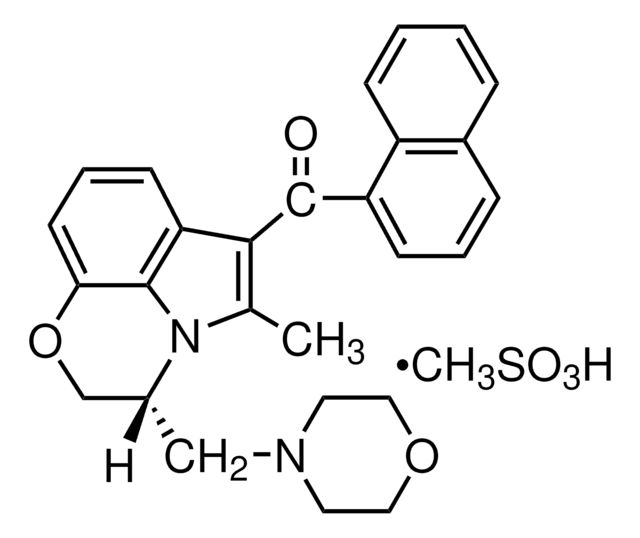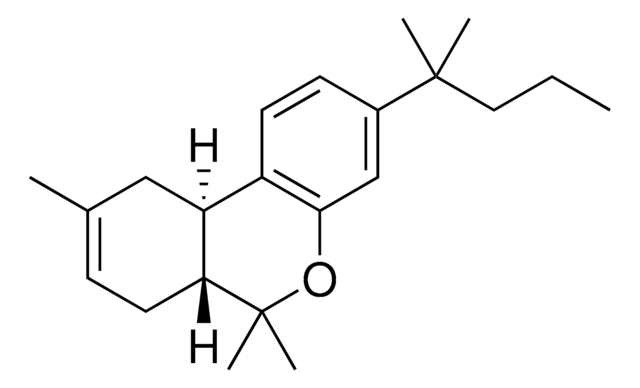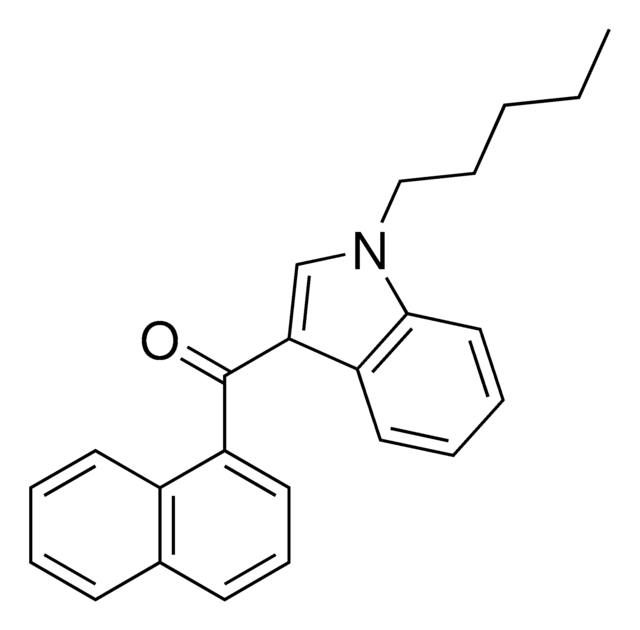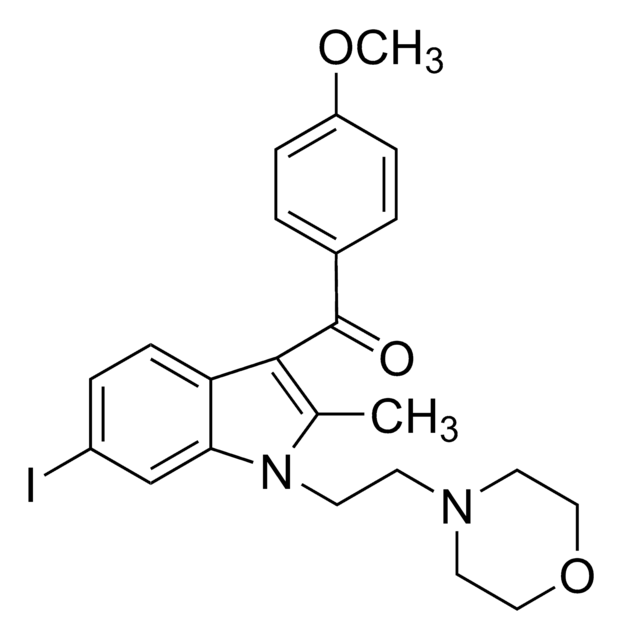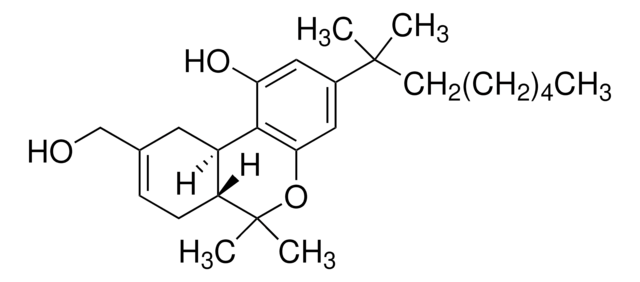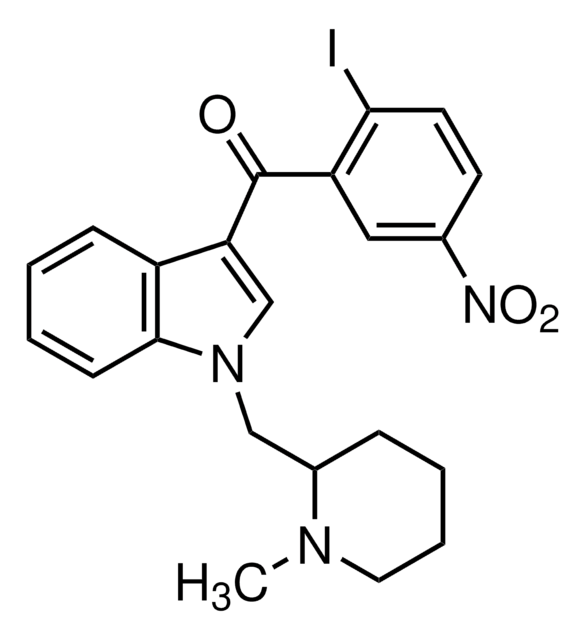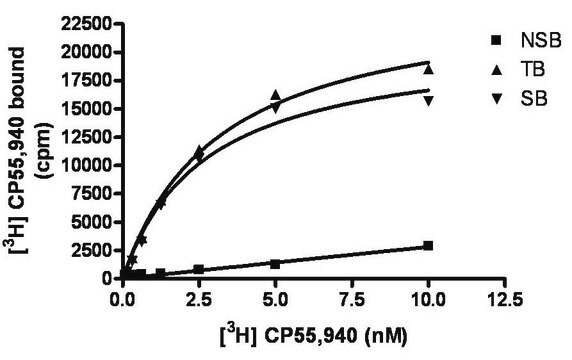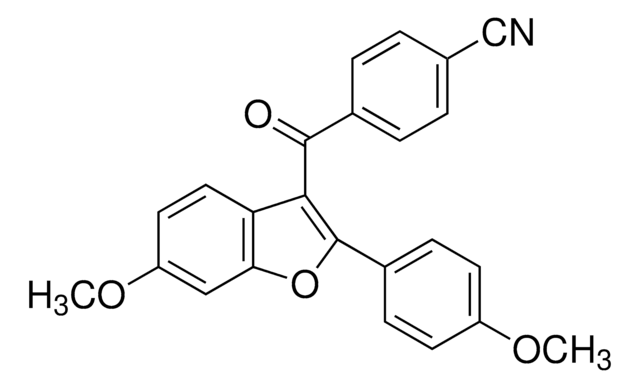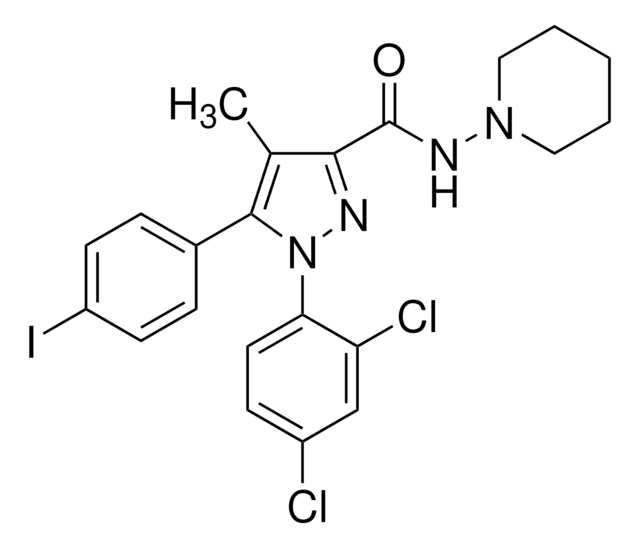C1112
CP-55940
>98% (HPLC), powder
Sinónimos:
5-(1,1-Dimethylheptyl)-2-[5-hydroxy-2-(3-hydroxypropyl)cyclohexyl]phenol
About This Item
Productos recomendados
Quality Level
assay
>98% (HPLC)
form
powder
optical activity
[α]/D -24 to -30°, c = 0.2 in chloroform-d
drug control
regulated under CDSA - not available from Sigma-Aldrich Canada
storage condition
desiccated
solubility
DMSO: 15 mg/mL
H2O: slightly soluble
storage temp.
2-8°C
SMILES string
CCCCCCC(C)(C)c1ccc([C@@H]2C[C@H](O)CC[C@H]2CCCO)c(O)c1
InChI
1S/C24H40O3/c1-4-5-6-7-14-24(2,3)19-11-13-21(23(27)16-19)22-17-20(26)12-10-18(22)9-8-15-25/h11,13,16,18,20,22,25-27H,4-10,12,14-15,17H2,1-3H3/t18-,20-,22-/m1/s1
InChI key
YNZFFALZMRAPHQ-SYYKKAFVSA-N
Gene Information
human ... CNR1(1268) , CNR2(1269)
rat ... Cnr1(25248)
Application
Biochem/physiol Actions
Features and Benefits
signalword
Warning
hcodes
Hazard Classifications
STOT SE 3
target_organs
Respiratory system
Storage Class
11 - Combustible Solids
wgk_germany
WGK 3
flash_point_f
Not applicable
flash_point_c
Not applicable
ppe
Eyeshields, Gloves, type N95 (US)
Elija entre una de las versiones más recientes:
¿Ya tiene este producto?
Encuentre la documentación para los productos que ha comprado recientemente en la Biblioteca de documentos.
Los clientes también vieron
Artículos
A large variety of cannabinoid drug standards, along with an HPLC method with the Supelco Ascentis® Express RP-Amide column, are presented in this article.
Nuestro equipo de científicos tiene experiencia en todas las áreas de investigación: Ciencias de la vida, Ciencia de los materiales, Síntesis química, Cromatografía, Analítica y muchas otras.
Póngase en contacto con el Servicio técnico